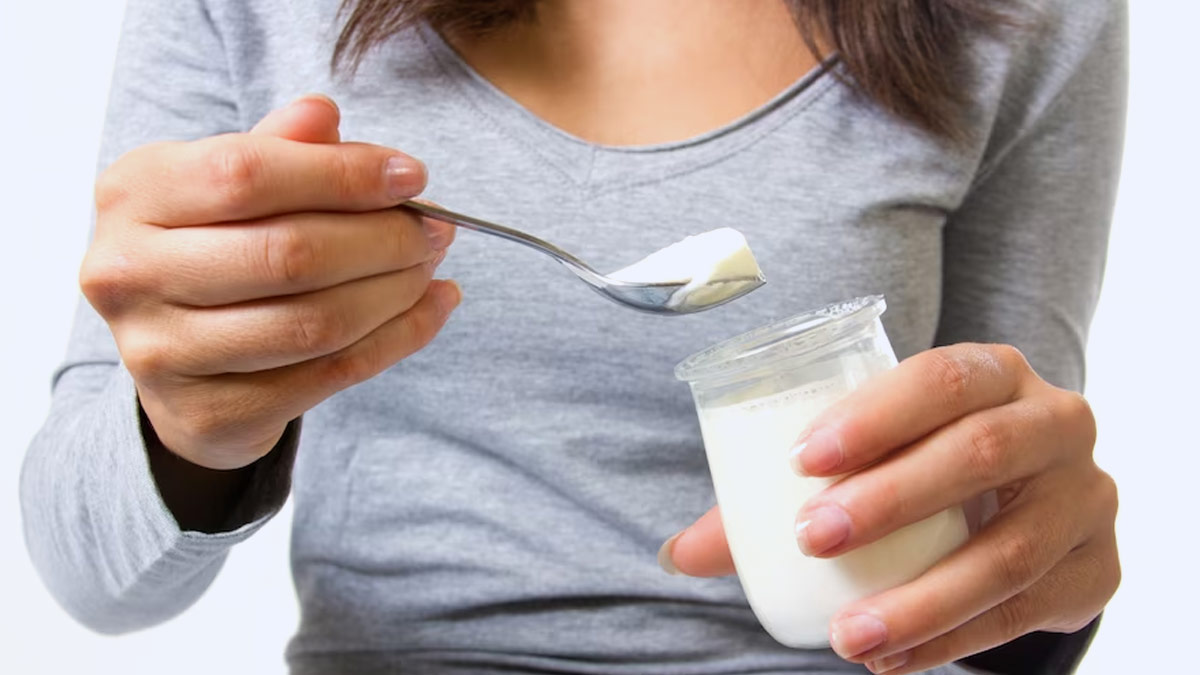
If you are looking to improve your digestive health, probiotics should surely be on your list. But do you wonder when you should consume it and if it should be eaten with or without a meal? These good bacteria help balance out harmful bacteria in the gut and improve overall digestive health. We spoke to our expert Dr Ekta Singhwal, MSc (Dietician), Ujala Cygnus Group of Hospitals, who explained the best time to take probiotics.
Table of Content:-
What Is The Ideal Time To Take Probiotics?

Consistency is Key
Dr Singhwal said, “The most important aspect of taking probiotics is consistency. It's more important to take them regularly rather than worrying too much about the exact time of day.” According to Tropical Life Sciences Research, probiotics can improve the immune system, reduce serum cholesterol, prevent bowel diseases, and maintain oral health.
With Meals
Dr Singhwal recommends taking probiotics with a meal, typically breakfast or lunch. This is because the presence of food in your stomach can provide a more stable environment for the probiotics to survive and thrive. She added, “It can help reduce the chances of any gastrointestinal discomfort that some people may experience when taking probiotics on an empty stomach.
Also Read: Ayurveda Expert Explains Tips For Good Digestion Of Food
Follow Label Instructions
Dr Singhwal noted, “Always follow the instructions on the probiotic supplement's label or your healthcare provider's recommendations. Different probiotic strains and products may have specific instructions regarding when and how to take them.”

Morning or Night
Some people prefer taking probiotics in the morning, while others prefer taking them at night. Dr Singhwal said, “The choice often depends on when it's most convenient and when you're more likely to remember to take them consistently.”
Dr Singhwal highlighted, “Some individuals prefer taking probiotics before bedtime, as they believe it allows the probiotics to work undisturbed while they sleep. There's no harm in doing this, but it may not make a significant difference in effectiveness compared to other times of the day.”
Empty Stomach
It is generally recommended to take probiotics with food, however, certain probiotic strains may be effective when taken on an empty stomach. Dr Singhwal added, “This can vary from person to person, so it's essential to listen to your body and adjust your routine accordingly.”
Also Read: Consuming Ghee On An Empty Stomach: Here's What You Need To Know
Avoid Antibiotics
If you're taking antibiotics, it's a good idea to separate the timing of your probiotic and antibiotic doses. Dr Singhwal added, “Take the antibiotic as prescribed by your doctor and then wait a few hours before taking your probiotic supplement. This helps minimise interference with the antibiotic's action.”
Consult Your Healthcare Provider
Ultimately, the best time to take probiotics can depend on your specific health needs and any underlying medical conditions. Nevertheless, it’s always a good idea to consult with your healthcare provider or a registered dietitian who can provide personalised recommendations based on your circumstances.
Bottomline
Dr Singhwal concluded, “The effectiveness of probiotics can vary from person to person, and the timing of when you take them is just one factor to consider. It's also important to choose a high-quality probiotic product with strains that are appropriate for your specific health goals and to maintain a balanced and nutritious diet to support overall gut health.”
[Disclaimer: The information in this article is shared by a registered healthcare professional and is for informational purposes only. Hence, we advise you to consult with your expert before adding anything to your diet, especially if you are dealing with any health conditions.]
Also watch this video
Read Next
Side-Effects Of Fibre: Here Are 7 Situations In Which Dietary Fibre Can Do More Harm Than Good
How we keep this article up to date:
We work with experts and keep a close eye on the latest in health and wellness. Whenever there is a new research or helpful information, we update our articles with accurate and useful advice.
Current Version